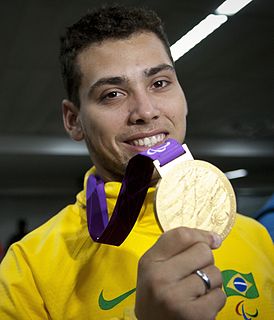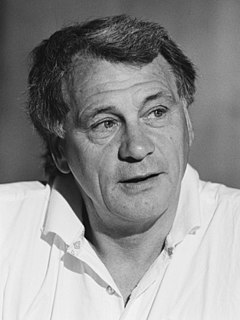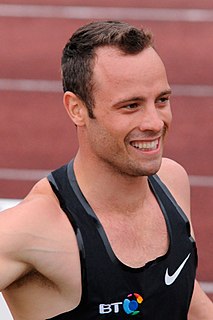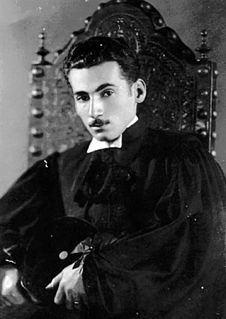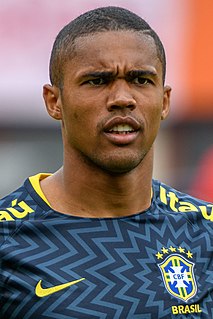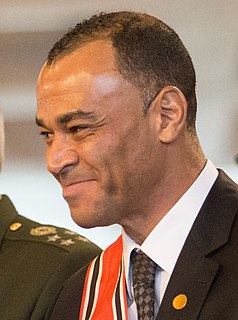A Quote by Alan Oliveira
People used to name me the Brazilian Pistorius. Thank God I'm not the Brazilian Pistorius any more. I'm Alan.
Related Quotes
My feeling is that my body and all my things inside me - when I move, when I do everything - are Brazilian because my family is Brazilian, and my mother language is Brazilian Portuguese. But all the thinking in my life, all the treatment with people, I think I'm more from Spain. That's how I grew up.
The poster boy for our superabled future is Oscar Pistorius, an increasingly famous South African sprinter who happens to have had both of his legs amputated below the knee. Using upside down question mark-shaped carbon fiber sprinting prosthetics, called Cheetah blades, Mr. Pistorius can challenge the fastest sprinters in the world.
Oscar Pistorius is now infamous for reasons that I think everybody knows about, but when I hit on his story and put it in the book, what I found fascinating was a description, from one of the scientists who helped Pistorius, of what the Paralympics will become. Because they don't place any restriction on enhancements for athletes, in the very near future the Paralympics will bear a closer resemblance to NASCAR than to the traditional Olympics. There will be a human-machine melding that will result in crazy feats of athleticism.
Oscar Pistorius is on the cusp of a paradigm shift in which disability becomes ability, disadvantage becomes advantage. Yet we mustn't lose sight of what makes an athlete great. It's too easy to credit Pistorius' success to technology. Through birth or circumstance, some are given certain gifts, but it's what one does with those gifts, the hours devoted to training, the desire to be the best, that is at the true heart of a champion.
